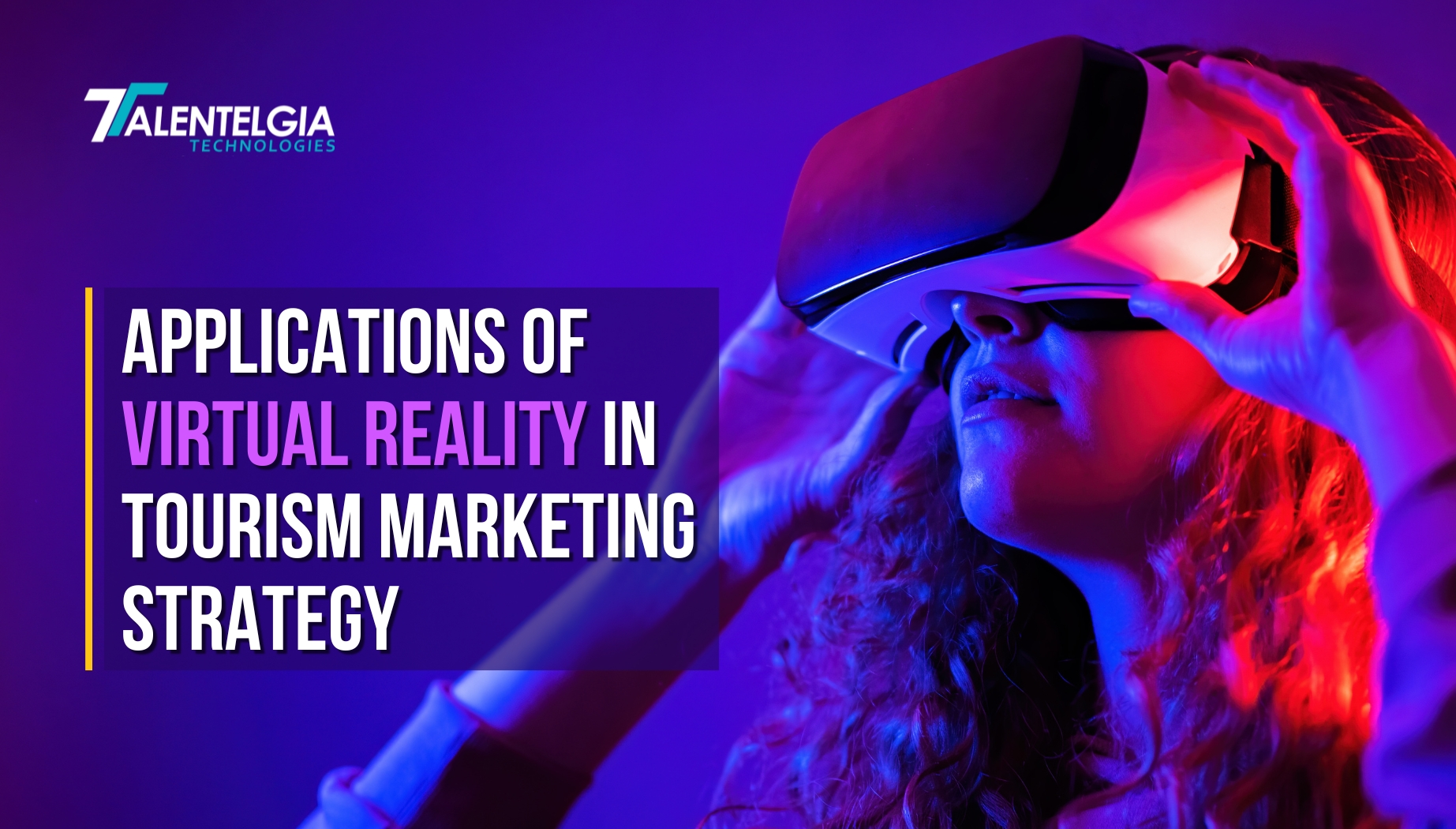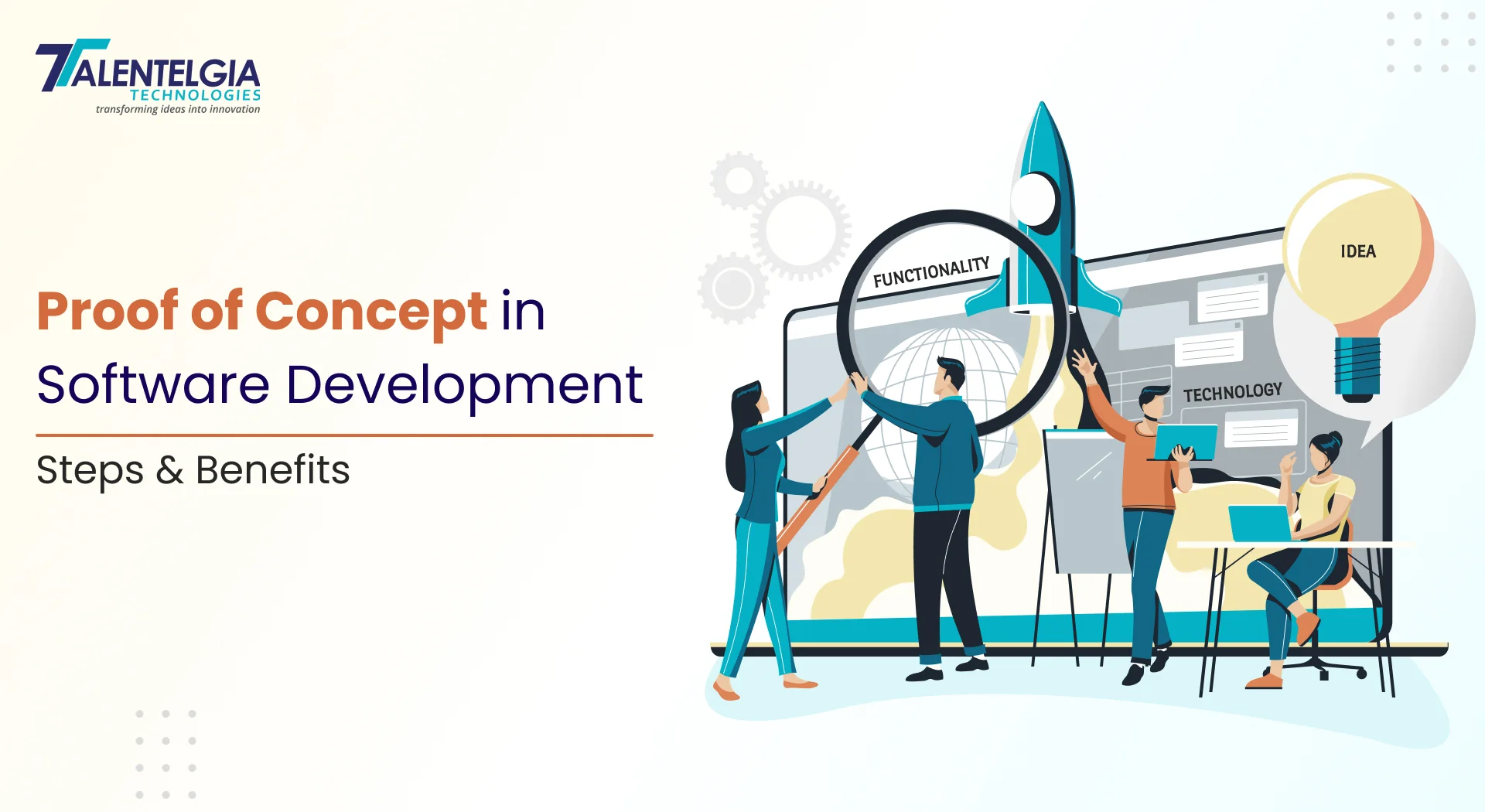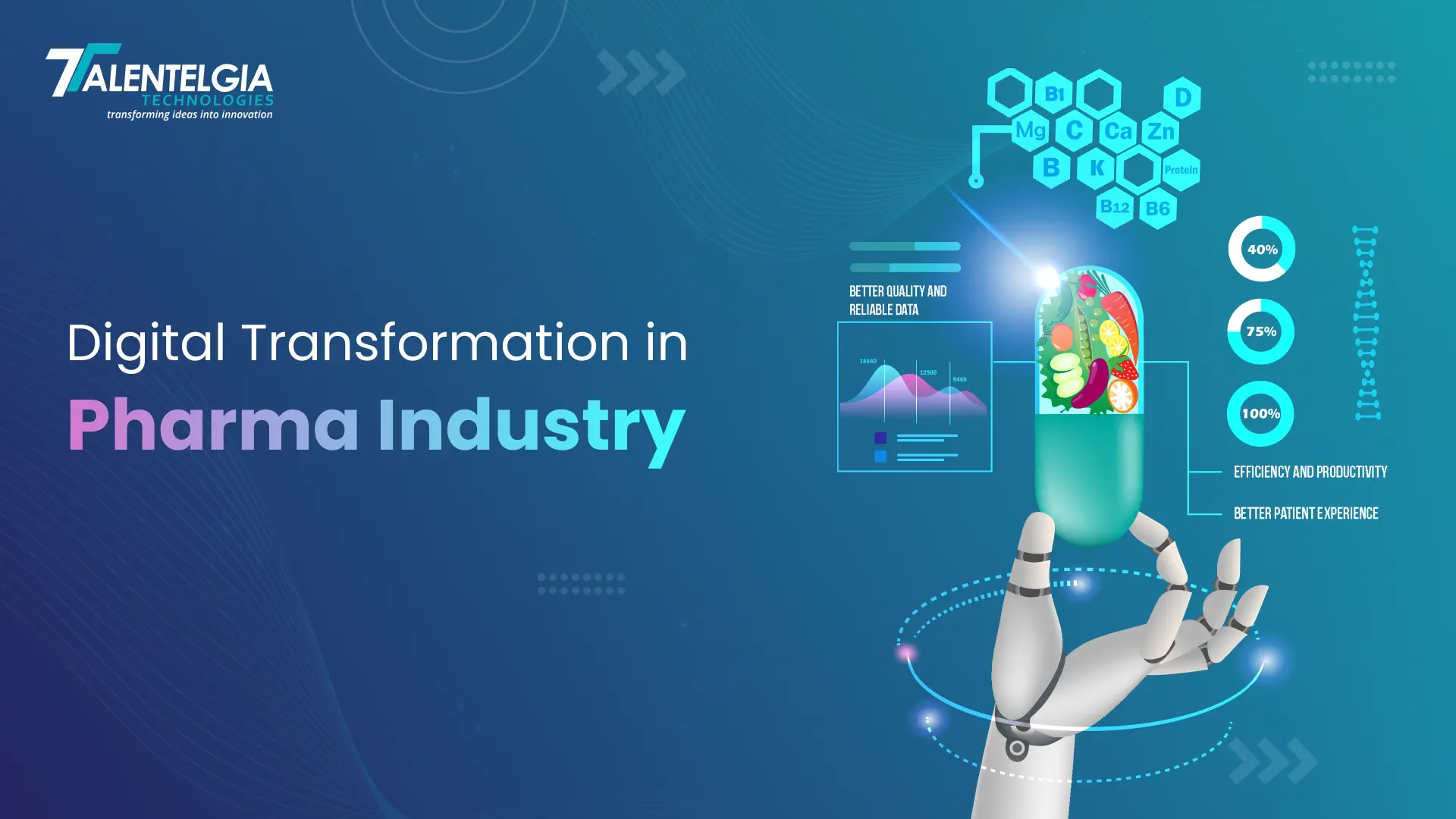Virtual reality (VR) is a technology that creates an immersive and interactive simulation of a real or imagined environment. VR can be experienced using a headset, a computer, or a mobile device. VR can provide users with a sense of presence, agency, and realism in the virtual world.
VR has many applications in various fields, such as education, entertainment, health care, and tourism.
In this blog, we will focus on how VR can be used to enhance tourism marketing strategy with the help of a VR app development company and attract more customers.
Why use VR for Tourism Marketing?
Tourism is one of the largest and fastest-growing industries in the world.
According to the World Tourism Organization, international tourist arrivals reached 1.5 billion in 2019, and are expected to grow to 1.8 billion by 2030. Tourism contributes to economic growth, social development, and cultural diversity.
However, tourism also faces many challenges, such as competition, sustainability, accessibility, and customer satisfaction. To overcome these challenges, tourism marketers need to adopt innovative and effective strategies to promote their destinations and products.
VR can be a powerful tool for tourism marketing because it can:
- Provide a realistic and engaging preview of the destination or product
- Stimulate curiosity and interest among potential customers
- Create emotional connections and memorable experiences
- Increase brand awareness and loyalty
- Reduce costs and risks associated with travel
- Enhance customer service and feedback
How to use VR for Tourism Marketing?
There are many ways to use VR for tourism marketing, depending on the goals, budget, and target audience of the marketer.
Here are some examples of how VR can be used for different purposes:
- Showcase the destination or product: VR can be used to create 360-degree videos or photos that capture the beauty, culture, history, and attractions of a destination or product. These can be viewed on a website, a mobile app, or a VR headset. For example, Realities is a free VR app that allows users to explore scanned and modeled real-world environments. Users can visit places like Alcatraz prison, Berlin Wall, or Machu Picchu in VR.
- Provide interactive experiences: VR can be used to create simulations that allow users to interact with the virtual environment and perform various activities. These can be accessed through a VR headset or a computer. For example, The Grand Canyon VR Experience is a paid VR app that lets users sit in a virtual motorized kayak ride through the Grand Canyon. Users can control the speed, feed the fish, and stop at scenic points.
- Create personalized stories: VR can be used to create narratives that involve users as characters or participants in the virtual story. These can be delivered through a VR headset or a computer. For example, The Invisible Man is a free VR app that tells the story of a man who wakes up invisible in his hotel room. Users can explore the room and discover clues about their identity and fate.
- Offer virtual tours: VR can be used to offer guided tours of the destination or product by using narration, text, audio, or video. These can be accessed through a VR headset or a computer. For example, Arts & Culture Expeditions is a free VR app by Google that offers over 900 virtual tours of various places and topics. Users can join or lead tours with their friends or classmates.
- Enable social interaction: VR can be used to enable social interaction among users who are in different locations but share the same virtual space. These can be facilitated through a VR headset or a computer. For example, [vTime XR] is a free social VR app that allows users to chat with friends or strangers in various virtual environments. Users can customize their avatars, choose their locations, and share photos.
What are the Benefits of Using VR for Tourism Marketing?
Using VR for tourism marketing can have many benefits for both marketers and customers.
Some of these benefits are:
- Increased engagement: VR can increase the engagement level of customers by providing them with immersive and interactive experiences that capture their attention and interest. Customers who are engaged are more likely to remember the brand and make a purchase decision.
- Enhanced differentiation: VR can enhance the differentiation of the destination or product by showcasing its unique features and benefits in a realistic and compelling way. Customers who are exposed to VR are more likely to perceive the brand as innovative and superior.
- Improved conversion: VR can improve the conversion rate of customers by reducing their uncertainty and risk associated with travel. Customers who experience the destination or product in VR are more likely to trust the brand and book a trip or buy a product.
- Reduced costs: VR can reduce the costs of marketing by eliminating the need for physical travel, brochures, or other promotional materials. Customers who use VR can access the destination or product anytime and anywhere, without spending money or time.
- Increased satisfaction: VR can increase the satisfaction level of customers by providing them with personalized and memorable experiences that meet their needs and expectations. Customers who are satisfied are more likely to recommend the brand and become loyal.
What are the Challenges of Using VR for Tourism Marketing?
Using VR for tourism marketing can also have some challenges that need to be addressed by marketers.
Some of these challenges are:
- Technical issues: VR can have technical issues such as low quality, high latency, limited compatibility, or malfunctioning devices. These can affect the performance and usability of the VR content and cause frustration or discomfort for customers.
- Ethical issues: VR can have ethical issues such as privacy, security, authenticity, or responsibility. These can affect the trust and credibility of the brand and cause legal or social problems for customers.
- Cultural issues: VR can have cultural issues such as language, norms, values, or stereotypes. These can affect the relevance and appropriateness of the VR content and cause misunderstanding or offense for customers.
- Marketing issues: VR can have marketing issues such as awareness, accessibility, affordability, or evaluation. These can affect the adoption and effectiveness of the VR content and cause low demand or feedback for customers.
How to Overcome the Challenges of Using VR for Tourism Marketing?
To overcome the challenges of using VR for tourism marketing, marketers need to follow some best practices and strategies. Some of these are:
- Test and optimize: Marketers need to test and optimize their VR content before launching it to ensure its quality, functionality, compatibility, and usability. They also need to monitor and update their VR content regularly to fix any bugs, errors, or glitches.
- Respect and protect: Marketers need to respect and protect their customers’ privacy, security, authenticity, and responsibility when creating and delivering their VR content. They also need to comply with any laws, regulations, or standards that apply to their VR content.
- Adapt and customize: Marketers need to adapt and customize their VR content according to the needs, preferences, expectations, and feedback of their customers. They also need to consider the cultural diversity and sensitivity of their customers when designing and developing their VR content.
- Promote and educate: Marketers need to promote and educate their customers about the benefits, features, and usage of their VR content. They also need to make their VR content accessible, affordable, and attractive for their customers.
Conclusion
VR is a technology that can revolutionize tourism marketing by providing immersive and interactive experiences that can attract more customers. However, VR also has some challenges that need to be overcome by following some best practices and strategies.
If you are looking for a reliable and professional Android app development company that can help you create your own VR app for tourism marketing, you should check out Talentelgia. It is a leading app development company that offers customized solutions for various industries, including tourism. We have a team of experts who can help you design, develop, test, launch, and maintain your VR app with high quality and efficiency.
To learn more about Talentelgia’s services and portfolio, visit the website or contact us at info@talentelgia.in.
Thank you for reading this blog. We hope you enjoyed it and learned something new. If you have any questions about VR for tourism marketing, please feel free to contact our team of experts. Have a nice day!


 Healthcare App Development Services
Healthcare App Development Services
 Real Estate Web Development Services
Real Estate Web Development Services
 E-Commerce App Development Services
E-Commerce App Development Services E-Commerce Web Development Services
E-Commerce Web Development Services Blockchain E-commerce Development Company
Blockchain E-commerce Development Company
 Fintech App Development Services
Fintech App Development Services Fintech Web Development
Fintech Web Development Blockchain Fintech Development Company
Blockchain Fintech Development Company
 E-Learning App Development Services
E-Learning App Development Services
 Restaurant App Development Company
Restaurant App Development Company
 Mobile Game Development Company
Mobile Game Development Company
 Travel App Development Company
Travel App Development Company
 Automotive Web Design
Automotive Web Design
 AI Traffic Management System
AI Traffic Management System
 AI Inventory Management Software
AI Inventory Management Software
 AI Software Development
AI Software Development  AI Development Company
AI Development Company  AI App Development Services
AI App Development Services  ChatGPT integration services
ChatGPT integration services  AI Integration Services
AI Integration Services  Generative AI Development Services
Generative AI Development Services  Natural Language Processing Company
Natural Language Processing Company Machine Learning Development
Machine Learning Development  Machine learning consulting services
Machine learning consulting services  Blockchain Development
Blockchain Development  Blockchain Software Development
Blockchain Software Development  Smart Contract Development Company
Smart Contract Development Company  NFT Marketplace Development Services
NFT Marketplace Development Services  Asset Tokenization Company
Asset Tokenization Company DeFi Wallet Development Company
DeFi Wallet Development Company Mobile App Development
Mobile App Development  IOS App Development
IOS App Development  Android App Development
Android App Development  Cross-Platform App Development
Cross-Platform App Development  Augmented Reality (AR) App Development
Augmented Reality (AR) App Development  Virtual Reality (VR) App Development
Virtual Reality (VR) App Development  Web App Development
Web App Development  SaaS App Development
SaaS App Development Flutter
Flutter  React Native
React Native  Swift (IOS)
Swift (IOS)  Kotlin (Android)
Kotlin (Android)  Mean Stack Development
Mean Stack Development  AngularJS Development
AngularJS Development  MongoDB Development
MongoDB Development  Nodejs Development
Nodejs Development  Database Development
Database Development Ruby on Rails Development
Ruby on Rails Development Expressjs Development
Expressjs Development  Full Stack Development
Full Stack Development  Web Development Services
Web Development Services  Laravel Development
Laravel Development  LAMP Development
LAMP Development  Custom PHP Development
Custom PHP Development  .Net Development
.Net Development  User Experience Design Services
User Experience Design Services  User Interface Design Services
User Interface Design Services  Automated Testing
Automated Testing  Manual Testing
Manual Testing  Digital Marketing Services
Digital Marketing Services 
 Ride-Sharing And Taxi Services
Ride-Sharing And Taxi Services Food Delivery Services
Food Delivery Services Grocery Delivery Services
Grocery Delivery Services Transportation And Logistics
Transportation And Logistics Car Wash App
Car Wash App Home Services App
Home Services App ERP Development Services
ERP Development Services CMS Development Services
CMS Development Services LMS Development
LMS Development CRM Development
CRM Development DevOps Development Services
DevOps Development Services AI Business Solutions
AI Business Solutions AI Cloud Solutions
AI Cloud Solutions AI Chatbot Development
AI Chatbot Development API Development
API Development Blockchain Product Development
Blockchain Product Development Cryptocurrency Wallet Development
Cryptocurrency Wallet Development About Talentelgia
About Talentelgia  Our Team
Our Team  Our Culture
Our Culture 
 Healthcare App Development Services
Healthcare App Development Services Real Estate Web Development Services
Real Estate Web Development Services E-Commerce App Development Services
E-Commerce App Development Services E-Commerce Web Development Services
E-Commerce Web Development Services Blockchain E-commerce
Development Company
Blockchain E-commerce
Development Company Fintech App Development Services
Fintech App Development Services Finance Web Development
Finance Web Development Blockchain Fintech
Development Company
Blockchain Fintech
Development Company E-Learning App Development Services
E-Learning App Development Services Restaurant App Development Company
Restaurant App Development Company Mobile Game Development Company
Mobile Game Development Company Travel App Development Company
Travel App Development Company Automotive Web Design
Automotive Web Design AI Traffic Management System
AI Traffic Management System AI Inventory Management Software
AI Inventory Management Software AI Software Development
AI Software Development AI Development Company
AI Development Company ChatGPT integration services
ChatGPT integration services AI Integration Services
AI Integration Services Machine Learning Development
Machine Learning Development Machine learning consulting services
Machine learning consulting services Blockchain Development
Blockchain Development Blockchain Software Development
Blockchain Software Development Smart contract development company
Smart contract development company NFT marketplace development services
NFT marketplace development services IOS App Development
IOS App Development Android App Development
Android App Development Cross-Platform App Development
Cross-Platform App Development Augmented Reality (AR) App
Development
Augmented Reality (AR) App
Development Virtual Reality (VR) App Development
Virtual Reality (VR) App Development Web App Development
Web App Development Flutter
Flutter React
Native
React
Native Swift
(IOS)
Swift
(IOS) Kotlin (Android)
Kotlin (Android) MEAN Stack Development
MEAN Stack Development AngularJS Development
AngularJS Development MongoDB Development
MongoDB Development Nodejs Development
Nodejs Development Database development services
Database development services Ruby on Rails Development services
Ruby on Rails Development services Expressjs Development
Expressjs Development Full Stack Development
Full Stack Development Web Development Services
Web Development Services Laravel Development
Laravel Development LAMP
Development
LAMP
Development Custom PHP Development
Custom PHP Development User Experience Design Services
User Experience Design Services User Interface Design Services
User Interface Design Services Automated Testing
Automated Testing Manual
Testing
Manual
Testing About Talentelgia
About Talentelgia Our Team
Our Team Our Culture
Our Culture

















 Write us on:
Write us on:  Business queries:
Business queries:  HR:
HR: 





